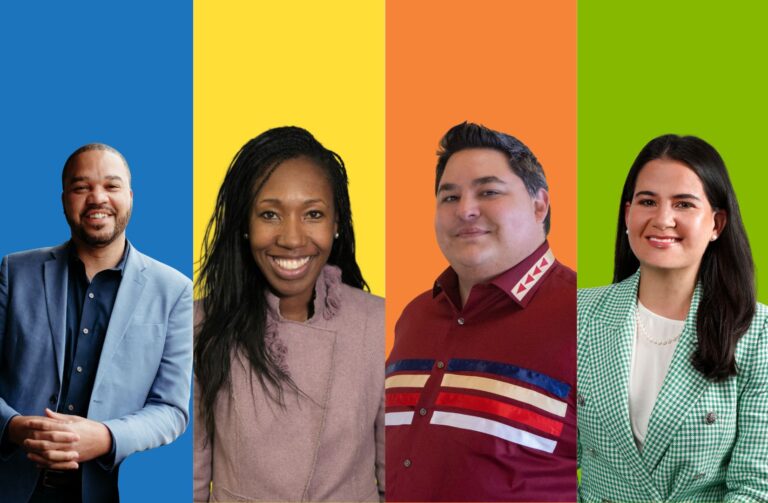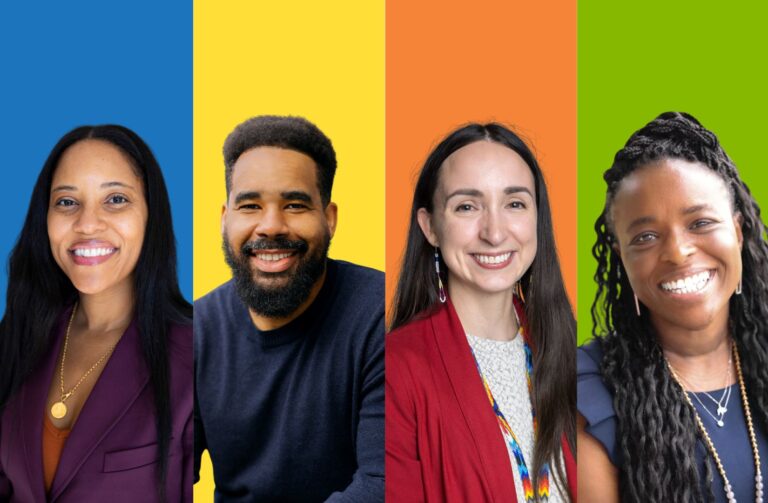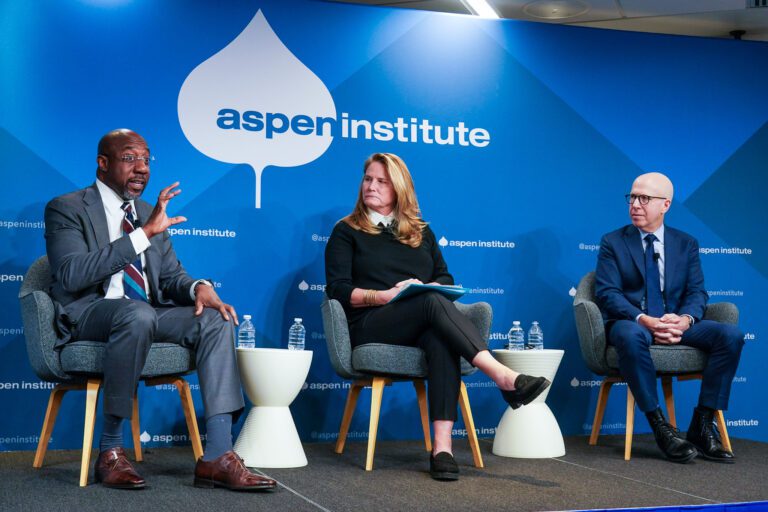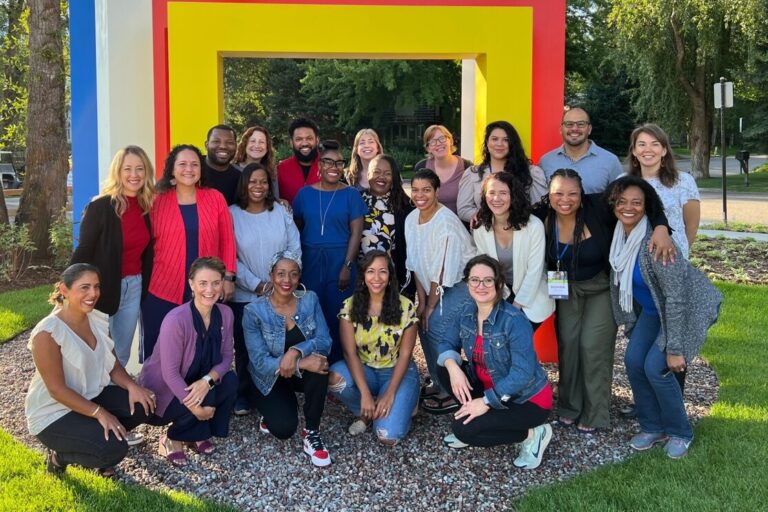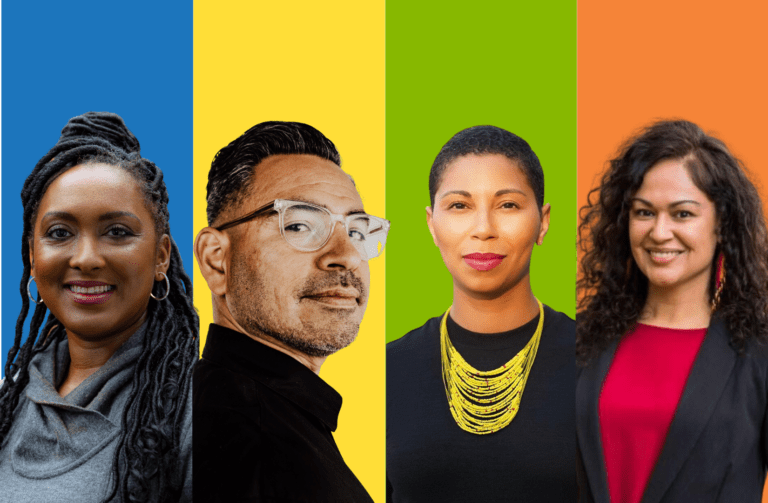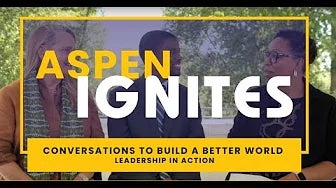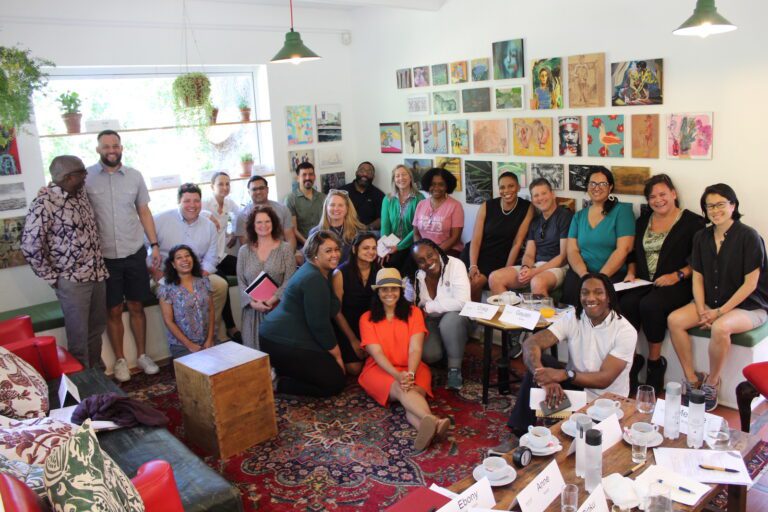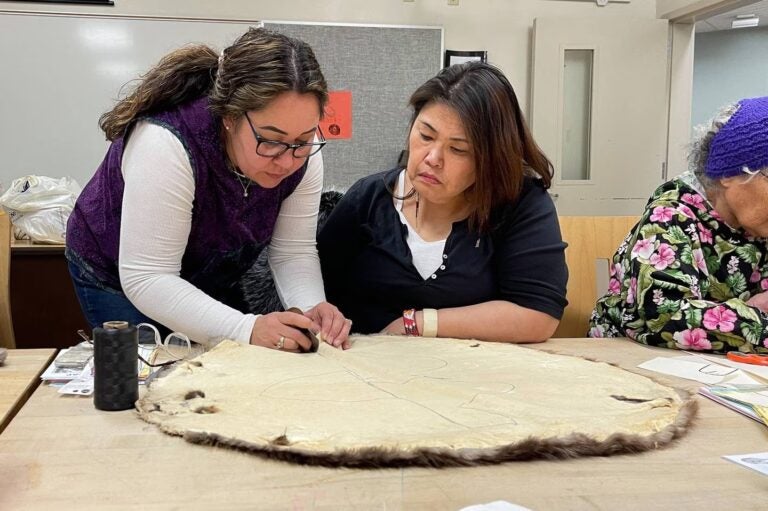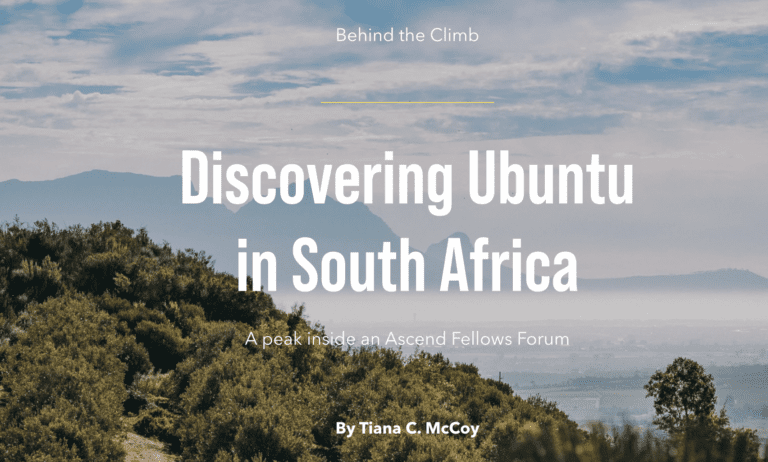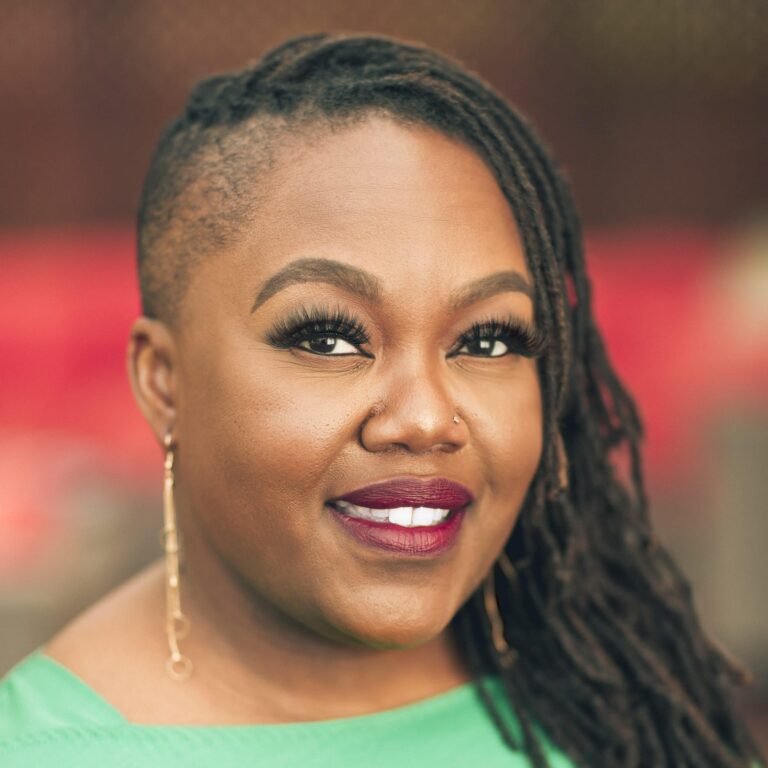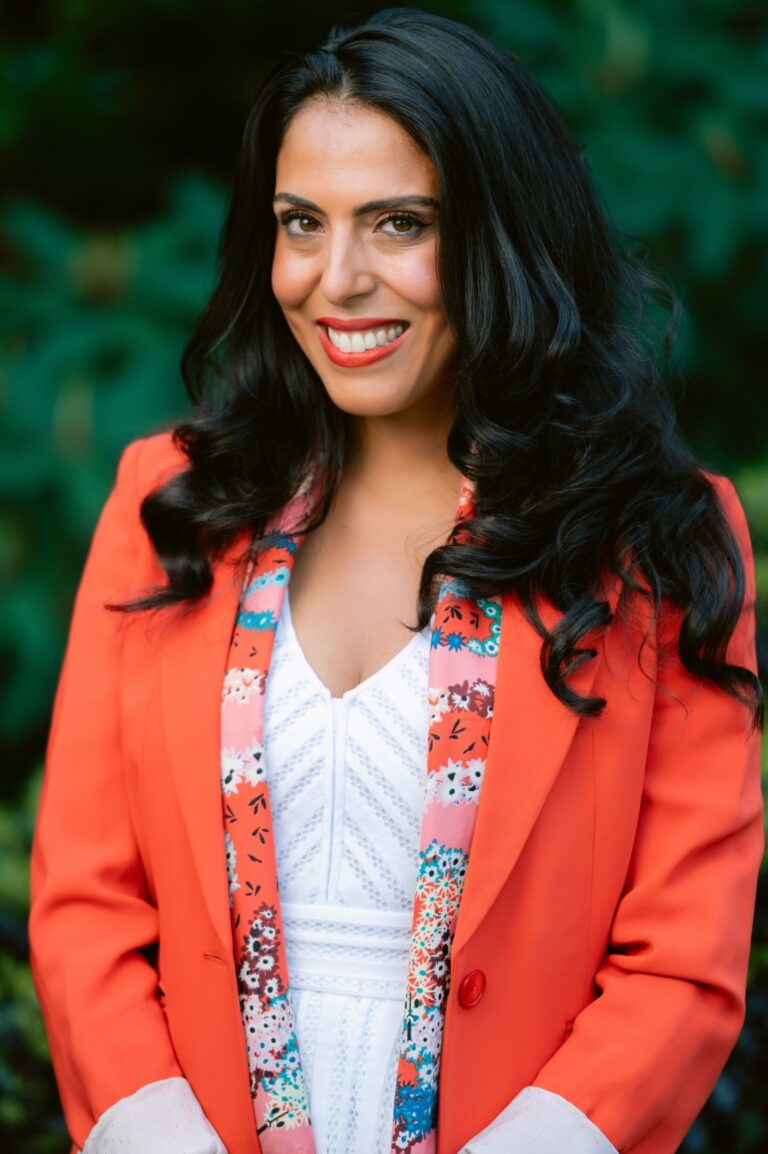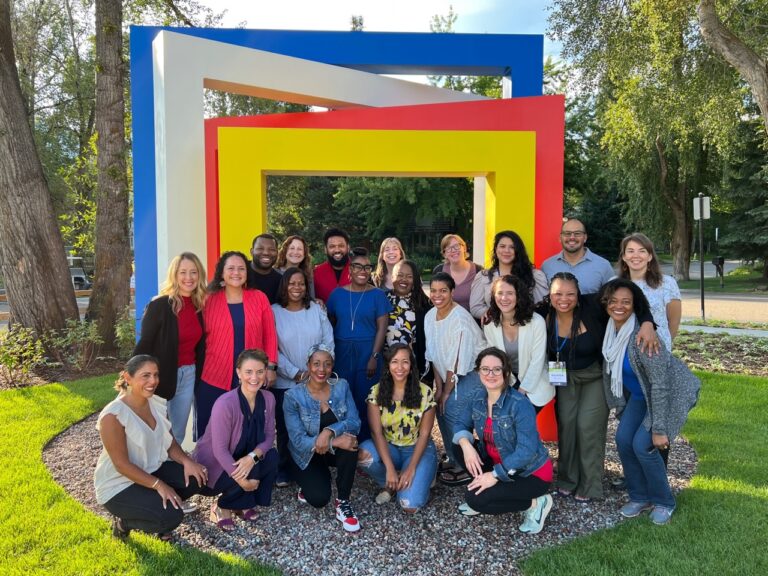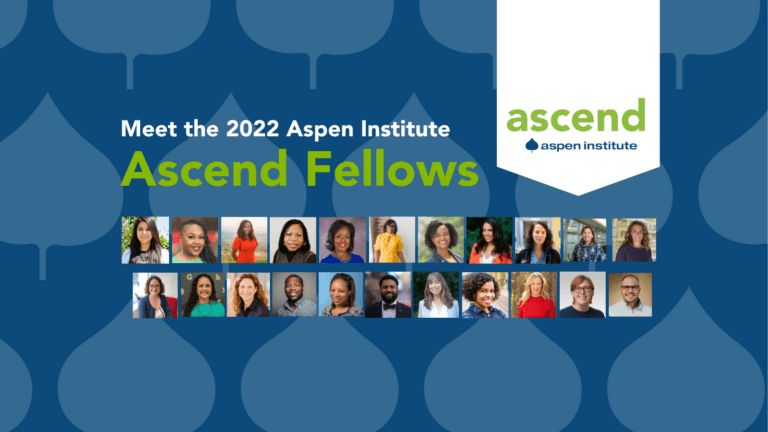Fellow Spotlight: Nathan Chomilo, Minnesota Medicaid & MinnesotaCare
Meet Nathan Chomilo, a 2022 Ascend Fellow and 2023 Aspen Ideas Health Fellow who’s incorporating community collaboration and racial equity into Minnesota’s Medicaid policy development.
Nathan Chomilo’s work has centered on the impact that early childhood intervention and healthcare access have on the long-term prospects of our children and how health systems can address racial and health equity. He is the Medical Director for the State of Minnesota’s Medicaid & MinnesotaCare programs, practices as a General Pediatrician with HealthPartners, and is an Adjunct Assistant Professor at the University of Minnesota Medical School. He also served as the State of Minnesota’s COVID-19 vaccine equity director and as a Senior Advisor on Equity to the Minnesota Commissioner of Health. This summer, Nathan will join nearly 100 fellows at Aspen Ideas: Health to engage in conversations on health’s biggest topics. We caught up with him ahead of the event to learn about his big idea and how he is putting it into action.
Tell us about your big idea!
Communities experiencing inequities in health and opportunity due to structural racism know what they need but often policymakers fail to incorporate their lived experience. By prioritizing policy development through a racial equity lens and implementing it through a community co-created process, Minnesota Medicaid is building racial equity into the core of the health care system.
What is the “Minnesota paradox” and how has it influenced your Big Idea?
Dr. Samuel Myers coined the term “Minnesota paradox” to describe how Minnesota has one of the highest qualities of life for white Minnesotans, while “African Americans are worse off in Minnesota than they are in virtually every other state in the nation.” This appalling disparity speaks to the role structural racism and inequity play in our health care system and in our broader society. As I started to learn more about what drives health inside and outside the traditional health care system, it became more evident that there was a failure to align policies and payment with the priorities of Black, American Indian and other communities of color and those experiencing systemic inequity. It is this misalignment that allows health disparities to persist and reveals a system not broken, but accomplishing what it was designed to do: allocate resources in a way that maintains the racist status quo. Medicaid is a key component of that system in Minnesota and around the country. My Big Idea seeks to not only illuminate why this paradox exists, but re-center the conversation and action around solutions that are co-created with the communities who bear the brunt of our inequitable health care system.
How did you effectively engage communities experiencing health inequity in Minnesota and why was this engagement important?
From the beginning of our work to “Build Racial Equity into the Walls of Minnesota Medicaid,” we knew we had to envision a process that was centered on the communities most impacted by structural racism and inequity. This would require acknowledgement of the state’s role in perpetuating structural racism and how it contributes to systemic inequities. In Minnesota, the two communities that consistently have some of the worst health outcomes due to structural racism are Black Minnesotans and Native Americans. I reached out to leaders in the Black community in Minnesota first because, in addition to what the data was telling us, I am a Black man who lives, works, and worships in the community. So, I believed I could help bring folks to the table who may have reluctance given how our state agencies have shown up in the past. I also grounded my team and community members in the reality of our institution’s ability to share power and co-create.
After meeting with community leaders, we held “Community Conversations” with broader members to seek further guidance. Through facilitated discussions in small groups we were able to get a rich level of engagement. Engagement is fundamental to helping us appropriately prioritize our policies and how we allocate resources. There are many paths to achieving greater health equity, but historically our healthcare system has disregarded the lived experience of those closest to the problem. Engaging communities right from the start and setting our priorities based on that is how we not only see greater health equity, but also how we begin to forge trust between our institutions and the communities they have harmed. That said, our communities are not monolithic. To get a true depth of perspective and ideas, you commit to showing up over and over again. Our process and the first report is at its infancy, so we hope to keep developing it, and learning lessons about what we got right and what we didn’t, for years to come.
How is Minnesota Medicaid building racial equity into its policy development?
The goal is to ask ourselves at every decision point, “is there a community disproportionately impacted by this? Is structural racism at play?” If yes, then looking at our data to see which community is most impacted and finding ways to follow their lead. I believe the Building Racial Equity into the Walls work is a key piece in this commitment. Our initial report has led to legislative proposals put forth by Governor Tim Walz, which have made it into the omnibus bills at the Minnesota legislature’s last two sessions. There have been transformative changes like extending continuous coverage for children enrolled in Medicaid, increased investment in resources like enrollment navigators, and overdue policy tweaks like allowing doulas paid by Medicaid to practice independently. It has also spurred discussions with leaders at the federal Centers for Medicare and Medicaid Services (CMS), Medicaid, and CHIP Payment and Access Commission (MACPAC). We are in the process of our next report, starting it in a similar process with our American Indian communities and sovereign tribal nations.
We are also implementing a number of steps to build more racial equity into our policies and administration of Medicaid. All proposals go through an equity assessment using a tool modeled after the Government Alliance on Race and Equity’s racial equity toolkit. In our Request for Proposals for our Medicaid Managed Care Contracts, we included questions explicitly addressing health disparities experienced by Black and American Indian enrollees. We have been improving the race and ethnicity data we have on our enrollees, so we can make sure the data we follow is accurate. And we are continuing to invest in community co-created models like our Integrated Care for High-Risk Pregnancy (ICHRP) model. It’s currently a grant-funded collaborative care model that is improving maternal and infant outcomes in Black and American Indian communities. Finally, we are incentivizing a decrease in racial health disparities with our contracted managed care organizations.
What do you wish people knew about your work?
I often end talks about health disparities and health equity with the statement that we can’t talk about or address health equity if we’re not ready to deal with structural racism. While there are many intersections that contribute to addressing health equity, I believe racism intersects all of them and it’s one of the defining reasons we have many of the entrenched disparities we see.
If we are ready to start there, I believe we’ll find solutions that impact all the communities that we care about. What we put forth in our first report reflected our conversations with some members of the U.S.-born Black Minnesotan community. But if you look at the Presidential Task Force on Health Equity that President Biden launched with one of his first Executive actions in 2021, they: had way more resources than we did; talked to hundreds of experts; talked to members of multiple communities; and put forward a document with fifty-five different recommendations and five broad areas of priority that overlaps closely with our calls to action. If you focus on communities that are most impacted by structural racism and build from there, the improvements and the work that come from it will impact other communities as well. This is not a zero-sum game, and we shouldn’t pit our communities against each other.
What gives you hope for the future?
I think we’re at a moment where many are feeling disheartened by a number of issues in our society, and wondering if they can ever really change. There are two things I take refuge in.
First: the upcoming generation of public health professionals and medical students. When I gave my remarks at the University of Minnesota School of Public Health Class of 2022 commencement, I noted that it was no coincidence that they had come to our profession. These students are all who many of us would like to be: the person that sees someone trapped in a burning house and runs in to save them. They have seen some of the worst in medicine and public health – not only the long hours and constant stream of patients with COVID-19, but the societal discord, from the maltreatment of public health workers to the racist backlash we are facing after a brief racial awakening after George Floyd’s murder. They have seen all that and remain committed to making things better.
Second, working directly with the community to create systemic change brings one a new hope. It draws you closer to seeing where the opportunities are that we really have yet to tap into as a society. Being asked to talk about work that is community-driven and focused, shows us that there are a lot of talented people committed to moving in the right direction. It’s understanding that it will take time but also that we did not get here overnight. Racial health disparities have evolved over decades and generations of policy decisions. It’s going to take us a while to get out of it, but it doesn’t mean it’s not worth doing. We will see a lot of tangible impacts if we continue.
This post was originally published on aspenideas.org.
Related Posts
